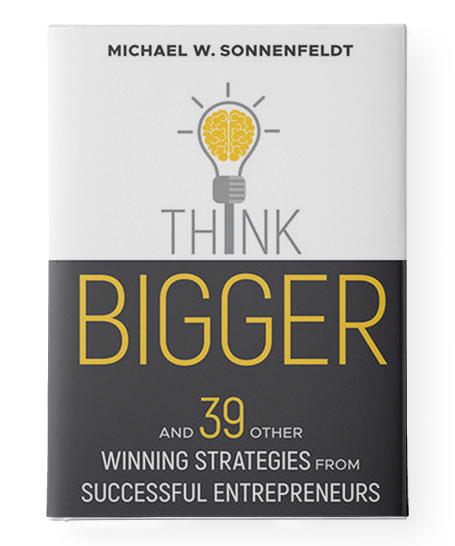Why you want to be wildly optimistic — perhaps even delusionally so — when it comes to creating something new
There may be no bigger fan of Daniel Kahneman than me. Kahneman, who won the Nobel Prize in economics, is one of the founding fathers of “behavior economics,” which applies psychological insights into human behavior to help explain the economic decisions we all make.
But even Nobel Prize winners can miss the mark upon occasion.
In his book Thinking, Fast and Slow Kahneman describes the optimism that people who start companies frequently have as “entrepreneurial delusion” which results in part from what he calls “fast thinking,” which is going with your gut” and results in entrepreneurs frequently taking on ventures that are too risky and costly.
For Kahneman, the world would be a better place if entrepreneurs — and the rest of us — worked harder to become “slow thinkers,” people who rely less on intuition and emotion and were more focused on careful deliberation.
Here’s the problem with that.
Starting anything new is not only scary. But daunting. If you were not optimistic, perhaps to the point of delusion, no one would ever try. There is something to be said for being one of the “crazy ones”
“Crazy” but not insane
Now, I am not advocating economic insanity.
If you have no background in the hard sciences, and you don’t have any intention of partnering with anyone who does, I don’t think you should commit every penny you own to your idea of creating a space shuttle between the Earth and Mars. In fact, I don’t think you should commit one penny to the idea.
But for projects that have a more realistic chance, ones that play to your particular strengths, I think you need to err on the side of optimism. If you don’t believe it can happen, no one else will.
If in response to your idea for something new that can solve an existing problem, people look at you funny, and say “normal people don’t think this way,” that’s fine. Who wants to be normal? Besides, passion and grit can overcome an awful lot of obstacles.
Even Kahneman ends up being ambivalent about this kind of “delusion.”
He concedes that there is a growing body of research that indicates that “if you were allowed one wish for your child, seriously consider wishing him or her optimism,” since by any objective measure optimists have better lives. They are happy, popular, more resilient, have stronger immune systems and live longer than those who are pessimistic and dour.
More important for our purposes Kahneman says optimism is “the engine of capitalism…when action is needed, optimism, of the mildly delusional variety, may be a good thing.”
Every potential entrepreneur has a dream for a business.
The best entrepreneurs believe they can make it happen, by building off what they know to solve a significant problem, or fill a whole in the marketplace.
(And if their effort doesn’t turn out as planned, they learn from what went wrong and try again, perhaps veering in another direction. They don’t immediate assume their setback proves their idea can’t be done.)
It is that optimism that allows them to keep going. And it is that kind of optimism on the whole that is responsible for capitalism’s success.
 NEW BOOK RELEASE
NEW BOOK RELEASE
Discover Think BIGGER—a new book by Wiley and part of the Bloomberg series. This book is a must-have for any entrepreneur. Think BIGGER will show you the skills to grow wealth that can be applied to making the world a better place.